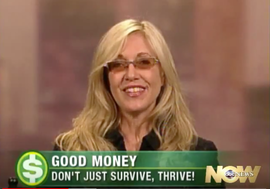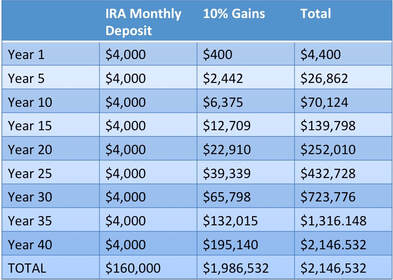|
Is Your Pension Plan Stealing From You? Is your health insurance at risk? The Seattle Times reported in August that many experienced Boeing engineers were planning to retire this month to avoid having their lump sum retirement amount slashed by as much as $200,000. Why would anyone take the lump sum rather than just keep working and take the monthly pension in a few years? There are plenty of reasons listed below. Additionally, if a Boeing engineer is close to retirement and loses $200,000 of his lump sum, it could take years to make up the losses. Pensions Don’t Offer Much of an ROI* I recently learned that I had some money remaining in a pension plan dating back to my post-university substitute teaching stint. The interesting thing is that the interest over a 23-year period was 37% lower than the contribution was. That parceled out to under 2% annualized, which makes very little sense compared to an annualized return of over 10% in stocks over the same period. When I asked for the breakdown of the return by year, I was advised that 2021’s interest rate was just 0.19% – in a year when the S&P500 scored 27%! *Return on Investment As you can see in the chart below, compounding gains are what can lead us to a life of financial freedom. In this example, the person is making just $40,000 a year, and putting 10% of that ($4,000) into a tax-protected IRA that is earning a 10% annualized return. So, if our pensions are mostly contributions and only a small (noncompetitive rate) of interest, then the company is taking the gains for itself and leaving pensioners with very little upside. (Pension monies are invested. However, the gains stay with the employer rather than being passed through to the pensioners.) This is partially why so many new millionaires and billionaires are in the technology and biotechnology sectors – because they have self-directed IRAs, rather than pensions. (It is reported that Peter Thiel has over $4 billion in his Roth IRA.) You should be able to see what kind of interest rate your pension provider is offering you in the annual Retirement Progress Report. If you’re not receiving an annual report, call your provider and request one. If you had a former job with any government agency or school, you might have some money in their fund that you are owed. It’s worth looking into. Is Your Plan Severely Underfunded? Will You Receive a Fraction of What You Were Promised? Even more concerning than the low interest rates offered by pension plans is the risk – something that many employees and investors are not fully aware of. In May of 2009, Delphi Technologies (a spinoff from General Motors) restructured their debt, terminated their pension plan and handed retirees over to the Pension Benefit Guaranty Corporation. Some pensioners received what they were promised, but many did not, due to the Maximum Guarantee of the PBGC being lower than the amount that they were promised. (Click to see those tables.) According to the PBGC 2022 annual report, “In Full Year 2022, PBGC paid over $7.0 billion in benefits to more than 960,000 retirees in terminated single-employer plans. PBGC also assumed responsibility for the benefit payments of nearly 8,000 current and future retirees in 32 single-employer plans during 2022.” (Yes, another 32 plans were terminated and turned over to the PBGC in 2022.) In 2019, the PBGC reported that 84% of recipients received the full amount. So, if you’re expecting a modest pension, you might be under the Maximum Guarantee of the PBGC. (It pays to check.) How Do You Know if Your Employer is in Trouble? With over half of the S&P500 at or near junk bond status, it’s a good idea to check on the fiscal health of the company you work for, particularly if you’ve been promised a pension. How can you check up?
Here’s How Boeing Ranked 1. Check the credit rating of your companyBoeing is one of the 30 components of the Dow Jones Industrial Average. The company is at the lowest rung of investment grade with a negative outlook, at BBB- (according to S&P Global). A credit downgrade will make borrowing more expensive for Boeing – something that is an issue, due to the amount of debt that Boeing is currently carrying. 2. Check the amount of debt your company owesAccording to the most recent earnings report, Boeing has over $153 billion in debt and liabilities. Meanwhile, the company is only valued at $104 billion. (So, the liabilities are higher than the value of the company.) Over $14.6 billion is for pensions and retiree healthcare, with about $58 billion in debt. Boeing’s 787 airlines are still grounded. Boeing expects to incur costs of $2 billion for this, with the bulk of the liability coming toward the end of 2023. Additionally, airlines – Boeing’s biggest customer by far – don’t fare well in recessions. 3. Check to see if the pensions and OPEBs* are underfundedMost corporate pension plans were fully funded in 2021, according to a report by Milliman. However, that is the result of a stellar market last year. Most pension funds have spent the last decade underfunded, with the last year of full-funding in 2007. In 2018, Boeing was $20 billion underfunded on pensions and OPEBs. This was before the 737 Max crisis. The same year that pensions were underfunded, the Boeing board and C-Suite repurchased $9 billion of Boeing stock and paid $4 billion in dividends. I’m using Boeing as an example. However, as I mentioned, over half of the S&P500 is at or near junk status. If you’re being offered a pension, then chances are you are working for a company that has been around for quite a while, is carrying a lot of debt and may have a low credit score. (Companies founded after 1980 offer 401ks instead of pensions, where employees can get a higher ROI, but can also lose money in recessions.) Airlines, auto manufacturers, old-school communications, etc. are all in this boat. Ford and the airlines (with the exception of BBB-rated Southwest) are all rated as junk bonds, while AT&T and Verizon are at the lowest rung of investment grade (BBB). Multiemployer Funds and Government Employees The White House bailed out some distressed multiemployer pension funds on July 6, 2022. Pew Research indicates that state pensions were underfunded by $1.25 trillion in 2019. New Jersey, Illinois, Hawaii, Alaska and New Mexico have the highest percentage of unfunded pension compared to personal income, while South Dakota and Wisconsin were the only two states that were overfunded on their pensions. None of this makes headlines in a bull market – but it certainly does in a recession, or when cities and counties declare bankruptcy. So, you might wish to consider putting the funds under your own roof now while the sun is still shining – before the next recession is declared or becomes apparent (if you’re able to). *Other Post-Employment Benefits Corporate health care benefits Most companies do not prefund their healthcare liabilities. During bankruptcies, these benefits are very vulnerable to getting reduced or canceled. So, if your employer will allow you to get a higher deductible plan that allows you to start building up your own Health Savings Account that’s a very good idea to consider (for Americans). Try to build up the funds in your HSA as best as you can and not dip into it for expenses unless you absolutely must. Healthcare is the biggest cost in retirement, and is one of the biggest reasons why retirees end up declaring bankruptcy. So the more that you can have in your own retirement plan, which no one can reduce or take away, the better off your future will be. The added benefits of HSA plans are that they also offer a tax credit. You can even invest the money for additional upside without capital gains taxes, if you dot the i’s and cross the t’s of the rules properly. It’s a good idea to get at least two or three years of your deductible in the account in cash before investing, just in case. Should You Roll Your Pension Over Into an Individual Retirement Account? The risks of letting a company or government take care of your future are that the pension promise might be broken, and you could receive less than you believe you are owed, and that you’re unlikely to benefit much from compounding gains or interest. The risk of rolling over to an IRA is that you’ll not be a good steward of your future, and either you or a financial planner will not properly protect your nest egg. This is a real concern. It’s easy to make money in bull markets and easy to lose in recessions. Most economists and business leaders believe that we’re headed into a recession. Most brokers ride the Wall Street rollercoaster, performing with the index – which could be headed down. Fortunately, there is an easy-as-a-pie-chart investing strategy that earned gains in the Dot Com and Great Recessions, when most people lost more than half of their wealth. Once you properly diversify and protect your wealth, you’ll just need to rebalance once or twice a year. (You can learn this time-proven 21st Century system at our Jan. 20-22, 2023 New Year, New You Financial Freedom Retreat.) Which Brokerage is Right for You? Be careful choosing your brokerage. It’s a good idea to find one that has a high credit rating, offers FDIC-insured cash, has low trading fees for self-directed investors, has a large selection of holdings for you to choose from and makes it easy for you to rebalance regularly (i.e. does not compensate its broker/salesmen for offering Buy & Hold products). If you are going to roll over the funds that will provide for your future, then be sure that you educate yourself on the basics of investing. A diversified plan with regular rebalancing (at least once a year) works quite well. We’re overweighting an additional 20% safe to protect from a potential recession. It’s also critical to know the basics of life math (that we all should have received in high school) so that you can be the boss of your money, rather than having blind faith that a broker-salesman is protecting you. Bottom Line While offering a 0.19% interest rate is not technically stealing, it is definitely highway robbery in a world where CDs and Treasury bills are paying above 4%. (The interest rate for my plan in 2022 was 0.43%.) Pension providers don’t invite you to rollover your pension elsewhere, but many (not all) do have an application where you can do just that. If this is of interest to you, be sure to get help from the brokerage where you wish to roll the funds into, and to receive guidance from your accountant to be sure that you do not create a taxable event. (You’re not “cashing it out,” you’re rolling it over.) Most companies that offer pension plans are the ones that are the most heavily indebted. Some of those end up terminating their plans during a bankruptcy restructuring, at which time retirees are forced to rely upon the Pension Benefit Guarantee Corporation. If your pension is rather modest then chances are you’re going to be below the maximum guarantee. However if your pension is pretty high, it could be above what PBGC will pay you. Again, during recessions, all investments are vulnerable to capital losses. So, anyone with a 401(k) or IRA needs to make sure that they are properly protected and diversified. Not all pension plans will let people take a lump sum and roll their money over into their own IRA. However, if your plan will, then you might be providing yourself with a higher ROI, compounding gains and a lower risk profile. Of course, this will require you educating yourself and being the boss of your money. How much have you lost this year (in your paper assets)? If you are over 50 and you've lost more than 10%, then your plan is not properly protected and diversified. Click to access our free easy-as-a-pie-chart web app, where you can personalize your own sample pie chart. If you're interested in learning 21st Century time-proven investing strategies for protecting your wealth and managing the bear market from a No. 1 stock picker, join us for our Jan. 20-22, 2023 Financial Freedom Retreat. Email [email protected] to learn more and to register. Click on the banner ad below to discover the 18+ strategies you'll learn and master, to get pricing information and to read testimonials Get the best price when you register with family and friends. Register now to access your free 4-part Protect Your Wealth Now webinar that will get you started immediately.  Join us for our New Year, New You Financial Freedom Retreat. Jan. 20-22, 2023. Email [email protected] to learn more. Register with family and friends to receive the best price. You'll also receive a free 4-part webinar (which you can access to protect your wealth now). Click for testimonials & details.  Natalie Wynne Pace is an Advocate for Sustainability, Financial Literacy & Women's Empowerment. Natalie is the bestselling author of The Power of 8 Billion: It's Up to Us and is the co-creator of the Earth Gratitude Project. She has been ranked as a No. 1 stock picker, above over 835 A-list pundits, by an independent tracking agency (TipsTraders). Her book The ABCs of Money remained at or near the #1 Investing Basics e-book on Amazon for over 3 years (in its vertical), with over 120,000 downloads and a mean 5-star ranking. The 5th edition of The ABCs of Money was released on September 17, 2021. Natalie Pace's easy as a pie chart nest egg strategies earned gains in the last two recessions and have outperformed the bull markets in between. That is why her Investor Educational Retreats, books and private coaching are enthusiastically recommended by Nobel Prize winning economist Gary S. Becker, TD AMERITRADE chairman Joe Moglia, Kay Koplovitz and many Main Street investors who have transformed their lives using her Thrive Budget and investing strategies. Click to view a video testimonial from Nilo Bolden. Check out Natalie Pace's Apple Podcast. Watch videoconferences and webinars on Youtube. Other Blogs of Interest The FTX Crypto Fall of a Billionaire (SBF). Crypto, Gold, Silver: Not So Safe Havens. Will Ted Lasso Save Christmas? 3Q will be Released This Thursday. Apple and the R Word. Yield is Back. But It's Tricky. The Real Reason Why OPEC Cut Oil Production. The Inflation Buster Budgeting and Investing Plan. No. Elon Musk Doesn't Live in a Boxabl. IRAs Offer More Freedom and Protection Than 401ks. Will There Be a Santa Rally 2022? What's Safe in a Debt World? Not Bonds. Will Your Favorite Chinese Company be Delisted? 75% of New Homeowners Have Buyer's Remorse Clean Energy Gets a Green Light from Congress. Fix Money Issues. Improve Your Relationships. 24% of House Sales Cancelled in the 2nd Quarter. 3 Things to Do Before July 28th. Recession Risks Rise + a Fairly Safe High-Yield Bond DAQO Doubles. Solar Shines. Which Company is Next in Line? Tesla Sales Disappoint. Asian EV Competition Heats Up. 10 Wealth Strategies of the Rich Copper Prices Plunge Colombia and Indonesia: Should You Invest? 10 Misleading Broker/Salesman Pitches. Why are Banks and Dividend Stocks Losing Money? Beyond Meat: Rare or Burnt? Netflix Streaming Wars End in a Bloodbath. Elon Musk Sells $23 Billon in Tesla Stock and Receives $23 Billion in Options. Are You Gambling With Your Future? ESG Investing: Missing the E. Bitcoin Crashes. Crypto, Bold and Stocks All Crash. The U.S. House Decriminalizes Cannabis Again. Chinese Electric Vehicle Market Share Hits 20%. The Risk of Recession in 6 Charts. High Gas Prices How Will Russian Boycotts Effect U.S. Multinational Companies? Oil and Gas Trends During Wartime Russia Invades Ukraine. How Have Stocks Responded in Past Wars? 2022 Crystal Ball in Stocks, Real Estate, Crypto, Cannabis, Gold, Silver & More. Interview with the Chief Investment Strategist of Charles Schwab & Co., Inc. Stocks Enter a Correction Investor IQ Test Investor IQ Test Answers Real Estate Risks. What Happened to Ark, Cloudflare, Bitcoin and the Meme Stocks? Omicron is Not the Only Problem What's Safe in a Debt World? Money Market Funds, FDIC, SIPC: Are Any of Them Safe? My 24-Year-Old is Itching to Buy a Condo. Should I Help Him? The 12-Step Guide to Successful Investing. Gardeners Creating Sanctuary & Solutions in Food Deserts. The Bank Bail-in Plan on Your Dime. Rebalancing Your Nest Egg IQ Test. Answers to the Rebalancing Your Nest Egg IQ Test. Important Disclaimers Please note: Natalie Pace does not act or operate like a broker. She reports on financial news, and is one of the most trusted sources of financial literacy, education and forensic analysis in the world. Natalie Pace educates and informs individual investors to give investors a competitive edge in their personal decision-making. Any publicly traded companies or funds mentioned by Natalie Pace are not intended to be buy or sell recommendations. ALWAYS do your research and consult an experienced, reputable financial professional before buying or selling any security, and consider your long-term goals and strategies. Investors should NOT be all in on any asset class or individual stocks. Your retirement plan should reflect a diversified strategy, which has been designed with the assistance of a financial professional who is familiar with your goals, risk tolerance, tax needs and more. The "trading" portion of your portfolio should be a very small part of your investment strategy, and the amount of money you invest into individual companies should never be greater than your experience, wisdom, knowledge and patience. Information has been obtained from sources believed to be reliable. However, NataliePace.com does not warrant its completeness or accuracy. Opinions constitute our judgment as of the date of this publication and are subject to change without notice. This material is not intended as an offer or solicitation for the purchase or sale of any financial instrument. Securities, financial instruments or strategies mentioned herein may not be suitable for all investors. Comments are closed.
|
AuthorNatalie Pace is the co-creator of the Earth Gratitude Project and the author of The Power of 8 Billion: It's Up to Us, The ABCs of Money, The ABCs of Money for College, The Gratitude Game and Put Your Money Where Your Heart Is. She is a repeat guest & speaker on national news shows and stages. She has been ranked the No. 1 stock picker, above over 830 A-list pundits, by an independent tracking agency, and has been saving homes and nest eggs since 1999. Archives
July 2024
Categories |








 RSS Feed
RSS Feed